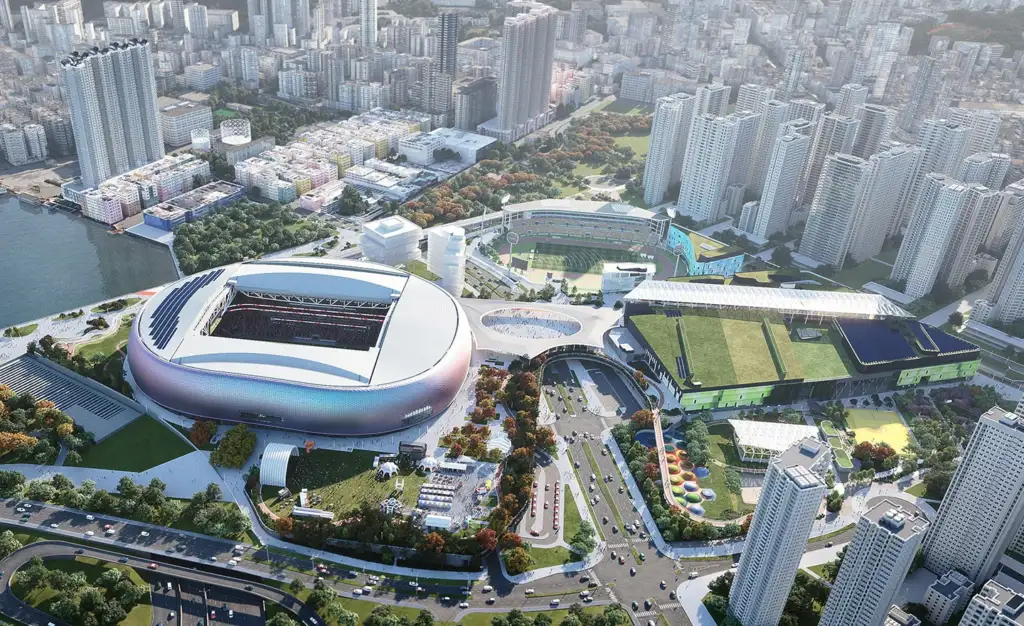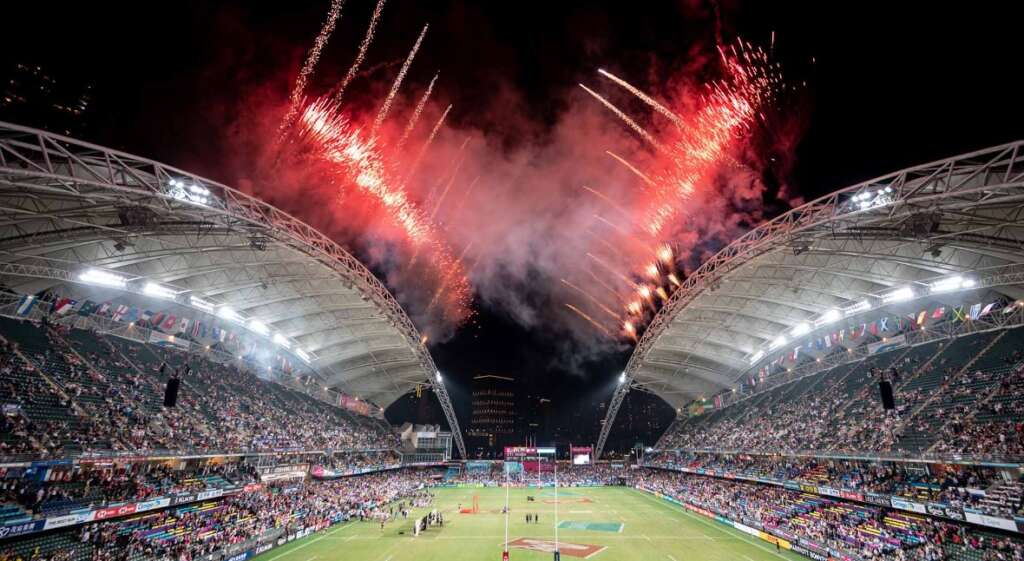HONG KONG CAN embrace tourism and entertainment activities with mega-sized sports events to woo more global tourist arrivals amid the grand opening of the Kai Tak Sports Park, and the co-hosting of the 2025 National Games, the sports sector’s leaders and think tank Our Hong Kong Foundation said last week.
The Kai Tak Sports Park is set to open in the first half of next year. Hong Kong will also co-host the National Games with Guangdong and Macau next year, with the new iconic sports park as one of the hosting venues.

The think tank has highlighted that sports tourism has become a global trend as it can bring visitors and economic benefits to the SAR. Based on the United Nations World Tourism Organization, sports tourism has contributed about 10% of global tourism spending. It is projected to expand at an annual average rate of 17.5% between 2023 and 2030.
Singapore and the US have staged mega sports events such as Formula One Grand Prix and the Superbowl to entice more visits from overseas tourists.
In the past few years, Hong Kong has hosted various signature sports events, such as the Hong Kong Sevens, LIV Golf Hong Kong, Hong Kong Tennis Open, Hong Kong Open Badminton Championships, Hong Kong Marathon and others. This year, the Hong Kong Sevens is estimated to generate about HK$320 million in economic benefits. Sports events bring significant economic benefits to the city, bolstering demand for hotels and flight bookings and inciting tourists to explore entertainment in surrounding areas and boosting spending.

The iconic Hong Kong Sevens is scheduled to be staged in a 50,000-seat main stadium at the Kai Tak Sports Park next year – after the rugby tournament has been held at the Hong Kong Stadium for 30 years.
Apart from sports events, Hong Kong will host more than 210 events this year, including artistic activities, sports competitions, conferences, trade shows and financial summits. The SAR government has estimated that the events were expected to bring in about 1.7 million travellers with estimated spending of about HK$7.2 billion.

In a research report entitled “Breaking Boundaries to Develop Hong Kong into a Mega Sports Events Capital”, unveiled in recent press conference, the Our Hong Kong Foundation has made a wide array of recommendations to boost the city’s allure as a hub for hosting mega sports events.
The think tank has recommended a plethora of ideas in three aspects – which include bidding and planning, enhancing sports infrastructure and developing sports entertainment. One of the recommendations is establishment of a permanent Mega Events Office based on the existing Mega Events Coordination Group – which is led by Deputy Financial Secretary Michael Wong Wai-lun.
MAXIMIZE BENEFITS
Professor Herman Hu Shao-ming, Vice President of the Sports Federation and Olympic Committee of Hong Kong, China, and a Hong Kong deputy of the National People’s Congress, said, “When Hong Kong has organized mega events, including sports events, we can strive to maximize their economic benefits and let all Hong Kong people become stakeholders, engage and immerse into all these mega events.”

Professor Hu, who is also an adviser on the think tank’s research study, and chair of Friday Culture, said Hong Kong can blend more cultural and tourism elements into mega sports events.
Professor Hu said that after the opening of the Kai Tak Sports Park, some Leisure and Cultural Services Department sports venues and facilities can be upgraded for Hong Kong to host top-tier sports events in near future.
BIDDING FOR BIG EVENTS
Lawmaker Kenneth Fok Kai-kong, who represents the sports, performing arts, culture and publication sector in the legislature, said Hong Kong’s sports sector needs the SAR government’s robust support to host large-scale sports events.

He cited an example that Singapore will host the 2025 World Aquatics Championships between July and August next year – which will bring about 2,000 to 3,000 athletes to the Lion City.
He said Singapore’s government has spent about US$100 million to host the championships. If Hong Kong hosts similar large-scale sports events, it needs huge financial resources and support from the Financial Secretary – which depends on the city’s fiscal resources and potential economic benefits.
At present, the government’s “M” Mark system aims to support major international sports events in Hong Kong with funding support of up to a HK$15 million matching grant.
Fok, who is also Vice President of the Sports Federation and Olympic Committee of Hong Kong, China, said Hong Kong also needs to step up training more talent and experts in diverse fields in sports industry, such as management of sports venues and facilities and sports dispute resolution.
Meanwhile, Our Hong Kong Foundation President Dr Jane Lee said Hong Kong athletes have made remarkable results at the Paris Olympics this year, injecting new impetus and vibrancy into sports development.

MEGA EVENTS CALENDAR
Regarding sports events’ bidding and planning, Our Hong Kong Foundation has recommended that the establishment of a permanent Mega Events Office can be based on the incumbent Mega Events Coordination Group.
The Mega Events Office can conduct cross-bureau coordination on bidding and planning of major events. The government can strategically plan the calendar to foster sports, arts, conferences and exhibition events.
On the enhancement of sports infrastructure, the think tank suggested that the SAR government can upgrade LCSD sports venues and stadiums to comply with latest international competition standards. Hong Kong can also co-host large-scale multi-sports events with the Greater Bay Area, transform the National Games Coordination Office (Hong Kong) into a permanent office, thereby leveraging sports venues in the bay area to co-host more large-scale sports events.

On development of sport entertainment, the think tank proposed to transform Kai Tak into a sports tourism hub, integrate entertainment activities into sports events and foster the development of retail, food and beverage and creative industries.
By mixing tourism and entertainment activities with international large-scale sports competitions, Hong Kong can turn sports frenzy into economic opportunities and boost the city’s status as a hub for mega sports events.
Image at the top is from Our Hong Kong Foundation.
